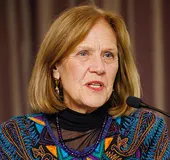
This article is part of the series—Raisina Edit 2023.
In a global tempest of regulatory antipathy to big tech and resurgence of protectionist digital industrial policy, many commentators would argue, realistically, that the notion of a multilateral framework for digital trade is a lost cause. Others would go further, noting that the global lighthouse beam from the World Trade Organization (WTO) is already fading and with it any hope that governments can jointly find their way to shared perspectives and a common outcome on anything, let alone our digital future.
< style="color: #0069a6;">Many governments are retreating to protectionist trade and industry policy positions behind the veil of significant and undeniably real global challenges, from national security risks to decarbonisation.
Indeed, more or less all commentators agree that the multilateral trading system is in bad shape. Some G7 members appear to have given up on the WTO and to have lost interest in its reform effort. Some leading G20 members have never put any real energy into it and continue to hesitate. Many governments are retreating to protectionist trade and industry policy positions behind the veil of significant and undeniably real global challenges, from national security risks to decarbonisation. The loser in every case is the consumer. At a time of apparent global political commitment to inclusiveness, worker centricity, and supply chain resilience, too few governments are acting to preserve a multilateral trading system that has delivered jobs and incomes to billions once in poverty. This is a real and urgent global problem. It must be addressed, free of ideology and independently of national political considerations, by the academic and think tank community. It is often forgotten but it’s businesses that conduct the daily business of international trade; not governments, not countries. The global business community would already have given up on the process of going to Geneva, were it not for the potential to reactivate the WTO’s negotiating function—kickstarting it if necessary, initially in practical plurilateral formats—in particular to establish some global governance around e-commerce/digital trade as the digital industrial revolution takes hold. The global economy is clearly going digital in both the public and private space. The underlying principles of the WTO system desperately need to be brought to bear as governments grapple individually to put in place the regulatory regimes required.
< style="color: #0069a6;">The biggest consequence is the risk that a strong and successful plurilateral deal will spell the end of the multilateral effort.
So, the business community remains engaged—for now. Plurilateral negotiations are underway via the Joint Statement Initiative (JSI) on Electronic Commerce. Progress in that context depends on key negotiating partners such as the United States and the European Union showing greater preparedness for dialogue around entrenched positions on critical issues such as data protection and privacy. Progress also depends on a handful of key WTO members that continue to hold back altogether from engagement in and endorsement of these plurilateral negotiations, with significant consequences now appearing on the near horizon. The biggest consequence is the risk that a strong and successful plurilateral deal will spell the end of the multilateral effort. On digital trade, in the WTO, the elephant in the room is the WTO Moratorium on Customs Duties on Electronic Transmissions. Mere mention of the “Moratorium” will no doubt ruffle feathers in New Delhi. But the fact is, it ultimately can’t be avoided. The G20 is the multilateral system’s best hope of breaking the prospective impasse on the Moratorium at the WTO Ministerial Council Meeting (MC13) in early 2024. The Raisina Dialogue does not shy away from constructive multistakeholder conversation. The troika consisting of the three Chairs of last year, this year, and next year’s G20 hold between them the power to fix the immediate problems and save the multilateral system. To explain this, if all or nearly all the negotiating partners in the JSI can reach agreement by the end of 2023 to jointly sign onto a plurilateral version of the Moratorium, and if a couple of months later, WTO Ministers fail at their next meeting (MC13) to renew the existing multilateral version, then my prediction is that the global business community will cease to invest in the WTO. There simply won’t be any incentive to do so. The digital transformation underway, especially in the services sectors, is so rapid and so ever present that digital trade is fast becoming the mainstay of global trade. If the WTO can neither develop the future governance required nor even renew its current disciplines, the last remaining multilateralists, and I am one of them, will be obliged to give up on a failed system and start work instead to minimise the consequent market fragmentation by building the next iteration. Bit by bit, the WTO system will diminish. The systemic unravelling could be rapid. The biggest danger is that as a new economic world order starts to build, a fragmenting global community will lose sight of what this process is costing for start-ups, digitally-enabled small and medium-sized enterprises, and consumers everywhere. While we still have the chance, we all need to reassert support for international trade, productivity, competitiveness, and access to global supply chains—support in sum for the WTO. Despite the tempest’s howling gale, energy must be focussed on keeping the WTO lighthouse beam alight. The Raisina Dialogue offers hope that a rekindling of the G7-G20 links can help build momentum for effective steps to tackle increasing divergence in digital regulatory settings and reboot multilateralism in trade policy. The message is a simple one. If the G7 and G20 do not stand together to bring this divergence to a halt and reboot multilateral dialogue and cooperation in the WTO, the global economic benefits of the digital technological revolution will dissipate.
< style="color: #0069a6;">The biggest danger is that as a new economic world order starts to build, a fragmenting global community will lose sight of what this process is costing for start-ups, digitally-enabled small and medium-sized enterprises, and consumers everywhere.
What would success look like? Is there still a landing zone in sight for a multilateral, as distinct from plurilateral framework, on digital trade? The answer is yes. The pre-condition, like it or not, is the renewal of the WTO Moratorium at MC13. This actually is not that hard. According to the Organisation for Economic Cooperation and Development’s Digital Trade Inventory, roughly half the WTO membership has signed on to provisions in regional and bilateral agreements that discipline customs duties on electronic transmissions. This includes India in its Comprehensive Economic Cooperation Agreement with Singapore (CECA), and Indonesia in the Regional Comprehensive Economic Partnership (RCEP). The same is true of other issues being handled in the JSI on e-commerce. These include provisions to build trust in the digital economy and facilitate digital trade, such as paperless trading, e-contracts, e-signatures, e-authentication, digital identities, anti-spam, and e-payments, as well as provisions to facilitate cross border data flows. WTO members can avoid the impending shipwreck. All that is required is the resolve to head in the direction of the lighthouse and get on with it. Guidance on how to get there is set out in the 2022 Think20 policy brief, Digital Industrialization Building Internationally Competitive Digital Industries with Global Value Chain Connectivity, and 2021 Think20 policy brief Digital trade: Top trade negotiation priorities for cross-border data flows and online trade in services.
The views expressed above belong to the author(s). ORF research and analyses now available on Telegram! Click here to access our curated content — blogs, longforms and interviews.




 PREV
PREV



